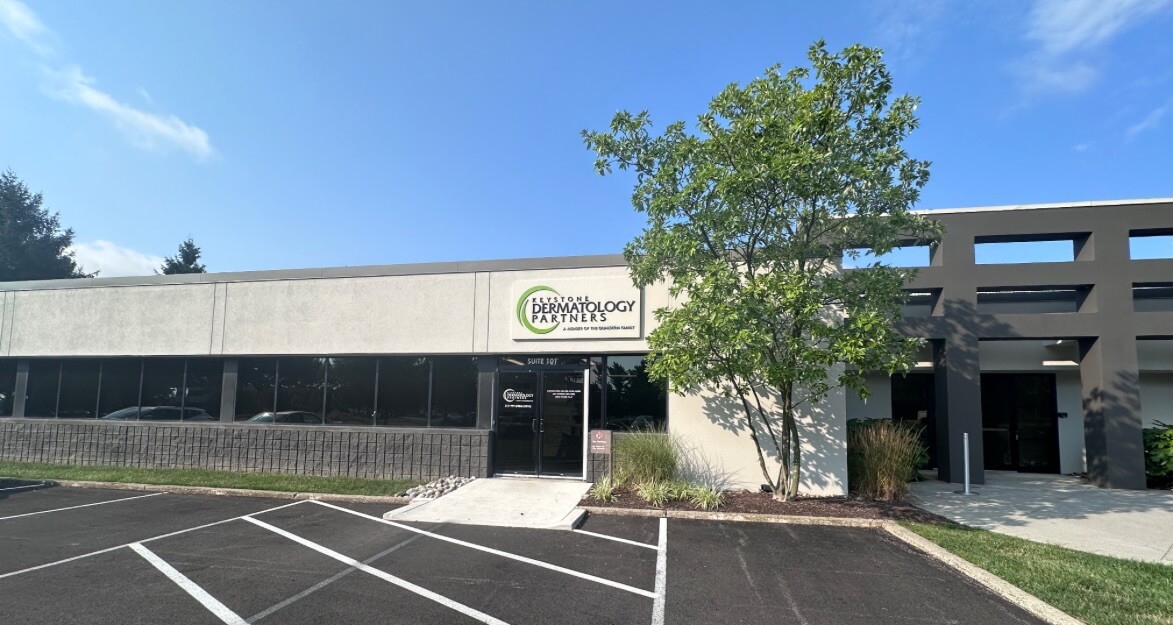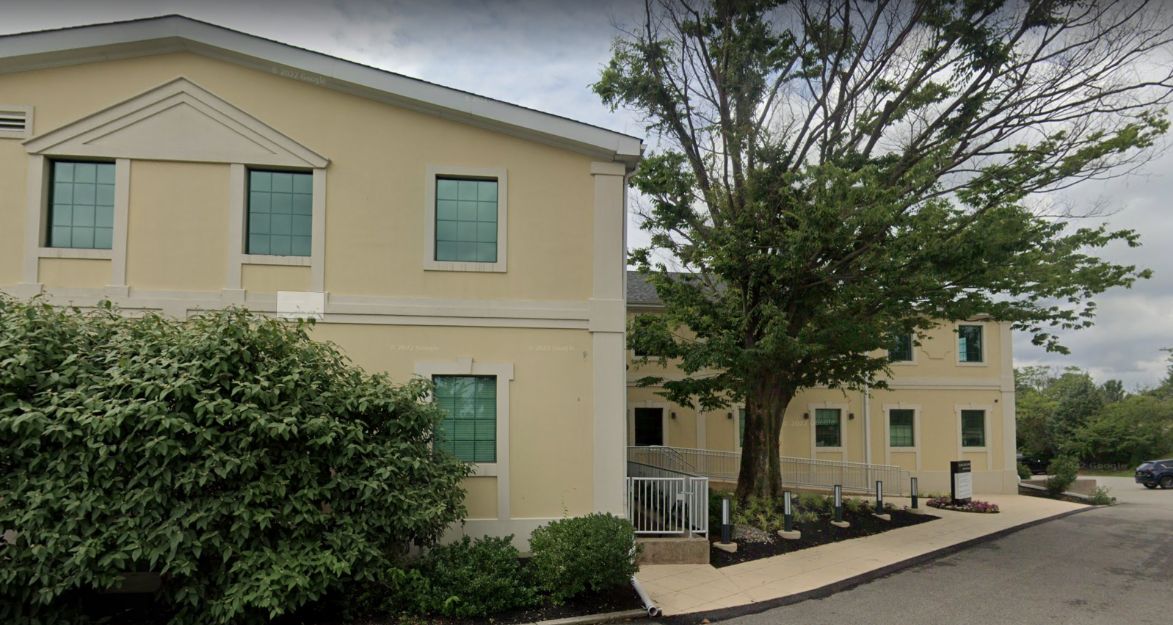Warts
Understanding Warts: Causes, Types, and Effective Treatments
Warts are non-cancerous skin growths caused by the human papillomavirus (HPV), which infects the top layer of the skin. These growths are characterized by small, raised bumps on the skin’s surface that can vary in appearance—from smooth and flat to rough and cauliflower-like. Warts can appear anywhere on the body but are most commonly found on the hands, feet, and face.
Warts are highly contagious and can spread through direct contact with an infected person or surface. They may also spread from one part of the body to another through scratching or touching. While warts are generally harmless, they can be bothersome, painful, or aesthetically displeasing, prompting many individuals to seek treatment.
At Keystone Dermatology Partners, our dermatologists are skilled in diagnosing and treating all types of warts, including common warts, plantar warts, flat warts, and filiform warts. We offer a variety of effective treatments, such as cryotherapy (freezing), topical medications, or laser therapy, to remove warts and help prevent their recurrence. Our goal is to provide clear and smooth skin for every patient.
Schedule an appointment with Keystone Dermatology Partners today to discover your personalized treatment plan for managing and eliminating warts.
Examples of Warts
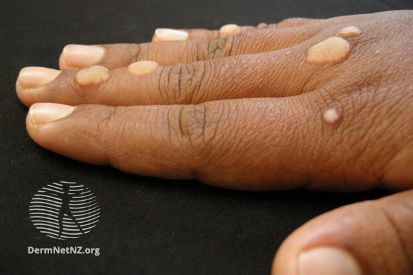
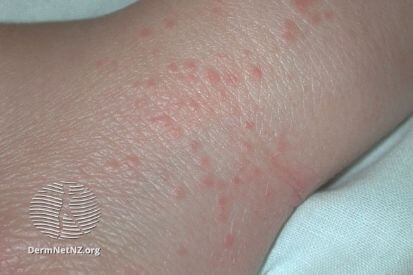
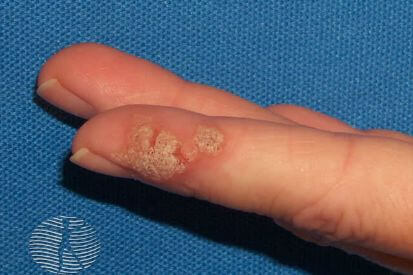
What Causes Warts?
- A contagious viral infection known as human papillomavirus (HPV).
- Children and individuals with weakened immune systems are more likely to develop warts.
Preventing the Spread of Warts
- Avoid contact with warts.
- Do not bite nails.
- Cover cuts or damaged skin.
Types of Warts
Some of the different types of warts are:
Common Warts:
- Found on hands and fingers
- Small flesh-colored bumps
- Rough in texture with small black dots
- Commonly found on the soles of the feet
- Flat in appearance
- Grow in clusters
- Can cause pain and discomfort
- Can grow on any area of the body
- Often form on children’s faces
- Small and smooth in appearance
- Typically occur in large numbers
- Long and thin in appearance
- Tend to grow around the mouth, nose, and eyes
- Grow rapidly
Frequently Asked Questions for Warts
Warts are contagious, especially through direct skin-to-skin contact. To prevent spreading, avoid picking at warts, and use precautions such as not sharing personal items.
Dermatologists often diagnose warts based on their appearance. If you have persistent or bothersome warts, especially on the face or genital area, it's advisable to schedule an appointment with a dermatologist.
Warts may go away on their own, but treatment is often recommended for faster resolution.
If you notice changes in a wart's appearance, such as growth, bleeding, or color changes, it's essential to consult a dermatologist promptly. Changes may indicate a need for further evaluation.
Warts are common in children, but adults can get them as well. The immune system plays a role in susceptibility. Dermatologists can provide appropriate treatments for all age groups.
From our QualDerm Family of Brands: What are Wart Infections?
Treatments for Warts
Treatment for warts can include:
- Prescription-strength medications
- Cryotherapy (freezing)
- Curettage (shaving)
- Salicylic acid
- Electrosurgery
- Surgical excision
Featured Blogs

- General Dermatology
Explore this blog for tips for that will keep your skin soft, comfortable, and virus-free.
Read More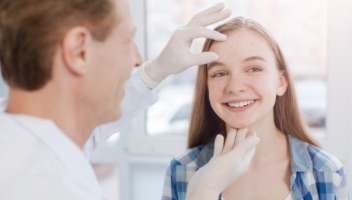
- General Dermatology
- Chronic Skin Conditions
Discover how a dermatologist father identified and managed molluscum contagiosum, a common and benign skin infection, after noticing skin-colored bumps on his son.
Read More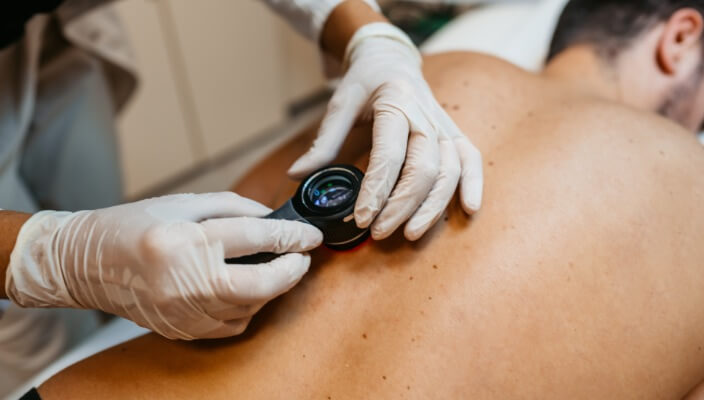
- Skin Cancer
- Skin Exams
In this blog, we’re covering what you need to know about five dangerous skin cancers, including basal cell carcinoma (BCC), squamous cell carcinoma (SCC), malignant melanoma, merkel cell carcinoma, and kaposi sarcoma.
Read More
